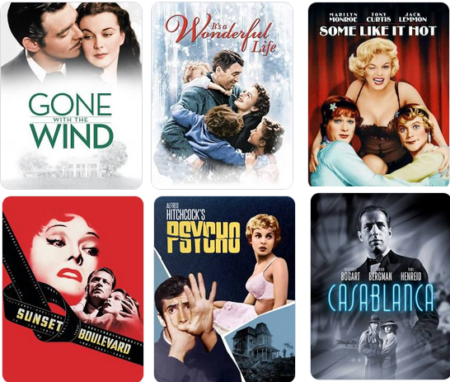In the realm of cinematic masterpieces, one movie stands out as a poignant reminder of the atrocities of World War II: Schindler’s List. Directed by the iconic Steven Spielberg, this emotionally gripping film has not only captivated audiences worldwide but has also sparked a multitude of unanswered questions and thought-provoking ideas in its wake.
Table of Contents
Today, we embark on a journey to explore the profound impact of Schindler’s List, delving into the depths of its narrative, characters, and themes that continue to resonate with us. From the very first frame, Schindler’s List transports us to the dark days of Nazi-occupied Poland, where the courageous Oskar Schindler seeks to save the lives of over a thousand Jewish people by employing them in his factories.
As we immerse ourselves in the harrowing tale, one cannot help but wonder: What were the true motivations behind Schindler’s actions? Was it pure altruism or a reflection of his own personal transformation? While some may argue that his motives were driven by self-interest, others perceive his acts of heroism as a genuine expression of compassion and empathy.

Furthermore, Schindler’s List presents us with an array of complex characters, each with their own unique stories and moral dilemmas. The enigmatic figure of Amon Goeth, the merciless Nazi officer, raises unsettling questions about the nature of evil and the capacity for redemption.
Is there a sliver of humanity hidden beneath the facade of his brutal actions, or is he simply a villain devoid of any redeeming qualities? As we grapple with these moral quandaries, we begin to understand that Schindler’s List is not merely a recounting of historical events; it is a probing exploration of the human condition and the choices we make in the face of adversity.
Join us as we embark on this journey of reflection and contemplation, as we unpack the unanswered questions and provocative ideas that lie beneath the surface of Schindler’s List. Through critical analysis and deep introspection, we aim to shed light on the enduring impact of this cinematic masterpiece and its profound relevance in today’s world.
Prepare to be enthralled by the power of storytelling and inspired to challenge our own perceptions as we delve into the heart-wrenching yet transformative tale of Schindler’s List.
The Motivations of Oskar Schindler: Pure Altruism or Personal Transformation?
One of the central themes in Schindler’s List is the motivations behind Oskar Schindler’s actions. As we witness his transformation from a self-centered businessman to a savior of Jewish lives, we are left pondering whether his actions were driven by pure altruism or if they were a result of his own personal transformation.
Some argue that Schindler’s initial motivations were rooted in self-interest. As a shrewd businessman, he saw an opportunity to profit from the war by employing Jewish laborers in his factories. However, as the atrocities committed against the Jewish people became increasingly apparent, Schindler’s conscience was awakened. He began to see the humanity in those he employed and felt compelled to do whatever he could to save them.
On the other hand, there are those who believe that Schindler’s actions were driven by genuine compassion and empathy. They argue that his transformation was not solely motivated by financial gain but rather by a deep-seated desire to make a difference and save as many lives as possible. His acts of heroism, such as bribing officials and risking his own life, demonstrate a level of selflessness that goes beyond mere personal gain.
Ultimately, whether Schindler’s motivations were purely altruistic or stemmed from personal transformation is open to interpretation. What cannot be denied is the profound impact he had on the lives of over a thousand Jewish people who owe their survival to him.
Unveiling Amon Goeth: The Nature of Evil and the Capacity for Redemption
Amon Goeth, portrayed chillingly by Ralph Fiennes in Schindler’s List, is one of the most enigmatic characters in the film. As a Nazi officer with a sadistic streak, he raises unsettling questions about the nature of evil and the capacity for redemption.
Goeth’s actions throughout the film are undeniably brutal and inhumane. He takes pleasure in inflicting pain and suffering on those under his command, treating them as mere objects to be discarded at will. His lack of empathy and disregard for human life paint him as the embodiment of evil.
However, there are moments in the film that hint at a sliver of humanity within Goeth. In one scene, he becomes infatuated with his Jewish maid, Helen Hirsch, and shows her unexpected kindness. This glimpse into his complex character raises questions about whether redemption is possible even for someone as seemingly irredeemable as Goeth.
Schindler’s List challenges us to confront our own beliefs about good and evil, forcing us to question whether individuals like Goeth are inherently evil or if there is potential for redemption within even the darkest souls.
Rethinking Heroes and Villains: Complex Characters in Schindler’s List
Schindler’s List presents us with a cast of characters who defy traditional notions of heroes and villains. Each character is complex, flawed, and capable of both acts of great courage and moments of moral ambiguity.
Oskar Schindler himself is not without his flaws. He starts off as a self-centered businessman motivated by profit but undergoes a transformation that leads him to risk everything to save lives. This complexity makes him a more relatable and compelling protagonist.
Similarly, Amon Goeth is not simply an irredeemable villain. While his actions are undeniably monstrous, there are glimpses of humanity within him that challenge our preconceived notions of good and evil.
Other characters, such as Itzhak Stern and Helen Hirsch, also embody this complexity. They are ordinary people thrust into extraordinary circumstances, forced to make difficult choices and confront their own moral compasses.
Schindler’s List reminds us that heroes and villains are not always easily identifiable. It forces us to question our own judgments and preconceptions, challenging us to see the humanity in even the most flawed individuals.
Schindler’s List as a Cinematic Masterpiece: The Power of Storytelling
One cannot discuss Schindler’s List without acknowledging its status as a cinematic masterpiece. Directed by Steven Spielberg, the film is a testament to the power of storytelling in conveying important historical events and evoking emotional responses from audiences.
Spielberg’s masterful direction brings the story to life with its stark black-and-white cinematography, creating a sense of authenticity and immediacy. The use of handheld cameras adds an intimate quality to the film, allowing viewers to feel as though they are witnessing the events firsthand.
The performances in Schindler’s List are nothing short of extraordinary. Liam Neeson delivers a nuanced portrayal of Oskar Schindler, capturing both his initial self-interest and his eventual transformation with depth and sensitivity. Ralph Fiennes’ portrayal of Amon Goeth is equally compelling, showcasing the complexities of his character.
Furthermore, John Williams’ haunting score adds another layer of emotional resonance to the film. The music serves as a powerful backdrop to the narrative, heightening both moments of tension and moments of quiet reflection.
Schindler’s List stands as a testament to the power of cinema in telling stories that have the ability to educate, inspire, and provoke thought. It serves as a reminder that storytelling has the capacity to shape our understanding of history and evoke empathy for those who have suffered.
Exploring the Human Condition: Choices in the Face of Adversity
Schindler’s List is a profound exploration of the human condition, particularly in the face of adversity. The film raises important questions about the choices we make when confronted with unimaginable horrors and challenges our understanding of what it means to be human.
Throughout the film, characters are forced to make difficult decisions that have life-or-death consequences. Oskar Schindler, in particular, grapples with his own moral compass as he navigates a world filled with unspeakable atrocities. His choices to save lives come at great personal risk and require immense courage.
The Jewish people employed by Schindler also face impossible choices. They must decide whether to trust him and risk their lives or remain hidden and hope for survival. These choices highlight the resilience and strength of the human spirit even in the darkest of times.
Schindler’s List reminds us that our choices define who we are as individuals and as a society. It forces us to confront our own capacity for good and evil and challenges us to consider what actions we would take in similar circumstances.
The Enduring Impact of Schindler’s List: Lessons for Today’s World
More than two decades after its release, Schindler’s List continues to resonate with audiences around the world. Its enduring impact lies not only in its portrayal of historical events but also in its ability to impart valuable lessons that remain relevant today.
The film serves as a stark reminder of the dangers of prejudice, discrimination, and unchecked power. It forces us to confront the consequences of hatred and intolerance while emphasizing the importance of empathy, compassion, and standing up against injustice.
Schindler’s List also serves as a call to action, urging us to learn from the past and strive for a better future. It reminds us that even in the face of overwhelming darkness, individuals have the power to make a difference and change the course of history.
As we navigate our own complex world filled with social and political challenges, Schindler’s List serves as a guiding light, reminding us of the importance of unity, compassion, and the preservation of human dignity.

Provocative Ideas and Unanswered Questions: Delving Beneath the Surface
Schindler’s List is a film that raises numerous provocative ideas and leaves many questions unanswered. It delves beneath the surface of its narrative to explore deeper themes and challenge our understanding of history, morality, and humanity.
One such idea is the notion that acts of heroism can arise from unexpected places. Oskar Schindler’s transformation from a self-interested businessman to a savior of lives challenges our preconceived notions about who has the capacity for greatness.
The film also raises questions about guilt and responsibility. In one scene, Schindler laments that he could have done more to save lives. This moment forces us to consider our own moral obligations in times of crisis and confronts us with uncomfortable truths about complicity.
Furthermore, Schindler’s List invites us to reflect on the nature of evil itself. Amon Goeth’s character presents us with an unsettling portrayal of someone capable of great cruelty yet also capable of moments that hint at their own humanity.
These unanswered questions and thought-provoking ideas serve as an invitation for further exploration and discussion long after the credits roll.
Reflecting on Compassion and Empathy: Themes in Schindler’s List
Schindler’s List is a film that is deeply rooted in themes of compassion and empathy. It challenges us to reflect on our own capacity for these qualities and reminds us of the power they hold in shaping the world around us.
Oskar Schindler’s acts of heroism are driven by his deep sense of compassion for the Jewish people he employs. His willingness to risk everything to save lives serves as a powerful example of the impact one individual can have when guided by empathy.
The film also highlights the importance of empathy in breaking down barriers and fostering understanding. Through his interactions with those he employs, Schindler is able to see beyond their religious identity and recognize their shared humanity.
Schindler’s List challenges us to consider how we can cultivate compassion and empathy in our own lives. It serves as a reminder that small acts of kindness and understanding can have a profound impact on those around us, even in the face of overwhelming adversity.
Relevance and Significance: Schindler’s List in Contemporary Society
Despite being set during World War II, Schindler’s List remains relevant and significant in contemporary society. Its themes, messages, and lessons continue to resonate with audiences today.
The film serves as a cautionary tale about the dangers of hatred, discrimination, and unchecked power. It reminds us that history has a tendency to repeat itself if we do not actively work towards creating a more inclusive and compassionate society.
Schindler’s List also prompts us to examine our own moral obligations in times of crisis. It challenges us to consider what actions we would take if faced with similar circumstances and encourages us to be proactive agents for change.
Furthermore, the film emphasizes the importance of storytelling as a means of preserving history and promoting empathy. By sharing stories like Schindler’s, we ensure that the lessons of the past are not forgotten and that future generations are inspired to make a difference.
In a world grappling with social and political challenges, Schindler’s List serves as a powerful reminder of the enduring power of compassion, empathy, and the pursuit of justice.

Conclusion: The Profound and Transformative Tale of Schindler’s List
Schindler’s List is a film that continues to captivate audiences with its profound and transformative tale. Through its exploration of complex characters, thought-provoking ideas, and enduring themes, it challenges us to confront our own beliefs, question our understanding of history, and reflect on our capacity for compassion and empathy.
The motivations behind Oskar Schindler’s actions remain open to interpretation. Whether driven by pure altruism or personal transformation, his acts of heroism have left an indelible mark on history.
Amon Goeth’s character raises unsettling questions about the nature of evil and the potential for redemption. His complexities challenge our understanding of good and evil, forcing us to confront uncomfortable truths about humanity.
Schindler’s List is not merely a recounting of historical events; it is a cinematic masterpiece that delves into the depths of the human condition. It reminds us that heroes and villains are not always easily identifiable and that our choices in the face of adversity define who we are as individuals.
The film’s enduring impact lies in its ability to impart valuable lessons for today’s world. It serves as a call to action against prejudice and discrimination while emphasizing the importance of empathy, compassion, and standing up against injustice.
As we delve beneath the surface of Schindler’s List, we are confronted with unanswered questions and thought-provoking ideas that invite further exploration. The film challenges us to reflect on our own capacity for greatness, confront our moral obligations, and consider the power of storytelling in shaping our understanding of history.
In conclusion, Schindler’s List is a cinematic masterpiece that continues to leave a lasting impact on audiences worldwide. Its profound and transformative tale serves as a reminder of the enduring power of compassion, empathy, and the pursuit of justice.
What is the Schindlers list?
Schindler’s List is a critically acclaimed film directed by Steven Spielberg. It is based on the true story of Oskar Schindler, a German businessman who saved the lives of over a thousand Jewish refugees during the Holocaust. The film portrays the atrocities committed during that time, highlighting the horrors of the concentration camps and the inhumanity of the Nazi regime.
Schindler’s List is not just a movie; it is a powerful testament to the resilience of the human spirit and the importance of compassion in the face of adversity. It raises important questions about morality, sacrifice, and the capacity for good in the darkest of times.
The film’s impact goes beyond its narrative. It has sparked conversations and provoked discussions about the Holocaust, prompting viewers to reflect on history and the lessons it holds. Schindler’s List serves as a reminder of the power of storytelling and its ability to educate, inspire, and bring about change.
Is what happened in Schindlers List true?
When it comes to the accuracy of historical events portrayed in “Schindler’s List,” it is important to understand that the movie is a dramatized interpretation of true events. While the overarching narrative of Oskar Schindler saving over a thousand Jewish lives during the Holocaust is based on historical accounts, some details and characters have been fictionalized for dramatic purposes.
Director Steven Spielberg worked closely with survivors and consulted historical records to ensure the film’s authenticity. However, certain aspects, such as the portrayal of specific events or the dialogue between characters, may not be entirely accurate. Nevertheless, “Schindler’s List” serves as a powerful and emotional depiction of the Holocaust, shedding light on the atrocities committed and the resilience of those affected.
While the film may not be a documentary, its impact on raising awareness of the Holocaust and inspiring further research and discussions cannot be understated. “Schindler’s List” continues to serve as a testament to the human capacity for compassion in the face of immense evil.
What are the historical inaccuracies in Schindlers List Why did Spielberg choose to make the film so dark and depressing?
Schindler’s List, directed by Steven Spielberg, is a powerful film that portrays the Holocaust and the heroic efforts of Oskar Schindler to save the lives of Jews. While the movie is widely acclaimed and considered a masterpiece, there are some historical inaccuracies present.
One notable inaccuracy is the portrayal of Amon Goeth, the commandant of the concentration camp. In reality, Goeth was much younger and less physically imposing than portrayed in the film. Additionally, the relationship between Goeth and his Jewish maid, Helen Hirsch, is fictionalized for dramatic effect.
Spielberg deliberately chose to make the film dark and depressing to accurately depict the horrors of the Holocaust. By immersing the audience in the bleakness of the events, he wanted to convey the magnitude of the tragedy and the immense suffering endured by the victims.
Overall, while Schindler’s List may have some historical inaccuracies, its intention to shed light on the atrocities of the Holocaust and the moral complexities of human nature remains impactful and thought-provoking.
Is the movie Schindler s List 1993 accurate?
Schindler’s List, released in 1993, is a highly acclaimed historical drama directed by Steven Spielberg. The movie portrays the true story of Oskar Schindler, a German businessman who saved the lives of over a thousand Jewish refugees during the Holocaust. While Schindler’s List is widely regarded as a masterpiece and an accurate depiction of the events that unfolded during World War II, it is important to remember that no film can capture every detail.
The movie combines factual events with artistic interpretation for dramatic effect. Certain scenes and characters have been condensed or altered to enhance the narrative flow. However, overall, Schindler’s List stays true to the essence of the story and effectively conveys the horrors of the Holocaust.
Although some individuals may question certain aspects of the movie’s accuracy, it remains an invaluable resource for educating and raising awareness about the Holocaust. Schindler’s List serves as a powerful reminder of the atrocities committed during this dark period in history and the heroism of those who risked their lives to save others.
Why in Schindler s List the characters spoke in English instead of German other than the fact the audience don t understand it?
One question that often arises when watching “Schindler’s List” is why the characters in the film speak in English instead of their native German language. While it may seem odd at first, there are a few reasons behind this creative choice.
First and foremost, the decision to have the characters speak in English allows for a broader audience to connect with the story. It is a common practice in the film industry to use a universal language to ensure that the movie reaches as many viewers as possible. By using English, “Schindler’s List” was able to touch the hearts of people from various backgrounds and cultures.
Additionally, using English in the film helps to emphasize the universality of the themes presented. The story of the Holocaust and Oskar Schindler’s heroic actions transcend linguistic barriers. By having the characters speak in English, the focus remains on the emotional impact of the narrative rather than getting caught up in language differences.
In conclusion, while it may seem strange that the characters in “Schindler’s List” speak in English instead of German, this creative choice serves to broaden the film’s reach and emphasize the universal themes. It allows viewers from different backgrounds to engage with the story and connect with the characters on a deeper level.
Why should I watch Schindlers List 1993 movie?
Schindler’s List, released in 1993, is a movie that demands your attention for several compelling reasons. Firstly, it tells the true story of Oskar Schindler, a German businessman who saved the lives of over a thousand Jewish workers during the Holocaust. This historical narrative not only educates viewers about the atrocities of the Nazi regime but also highlights the power of individual action in the face of immense adversity.
Secondly, the movie’s masterful storytelling and cinematography captivate audiences from start to finish. Director Steven Spielberg’s attention to detail and the raw performances of the cast create a deeply emotional experience. The black-and-white cinematography adds a layer of authenticity to the narrative, immersing the viewers in the haunting atmosphere of World War II.
Moreover, Schindler’s List raises thought-provoking questions about morality and human nature. It explores the complexities of Schindler’s character and delves into the ethical dilemmas he faced throughout his journey. By watching this movie, you will be challenged to reflect on your own values and the impact of your choices.
Overall, Schindler’s List is a powerful and impactful movie that sheds light on a dark period in history. It serves as a poignant reminder of the atrocities committed during the Holocaust and the importance of compassion and empathy.
https://7artmovie.com/steven-spielbergs-director-review/
https://www.imdb.com/title/tt0108052/





